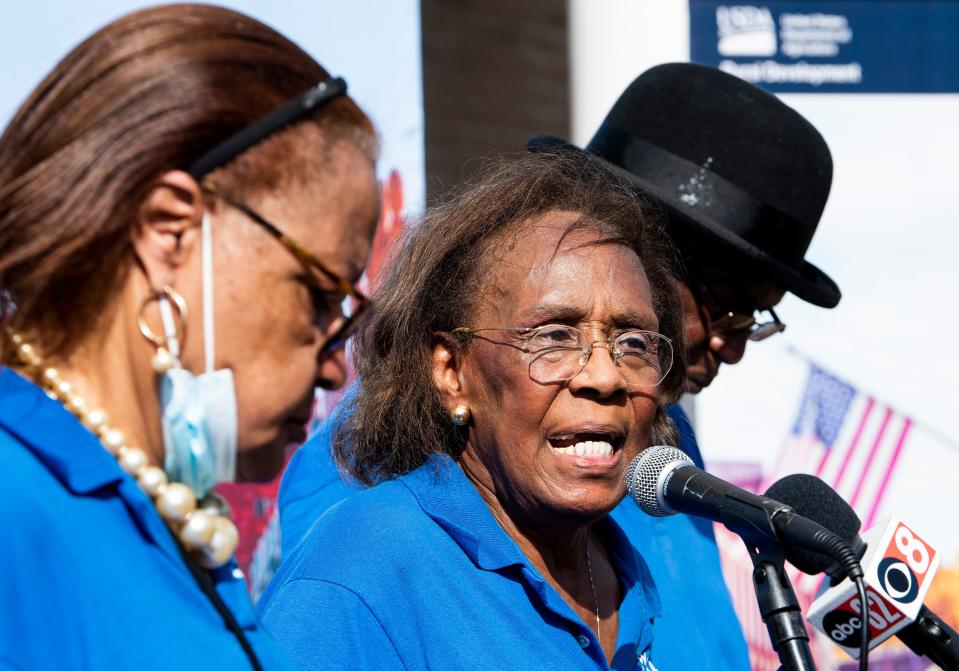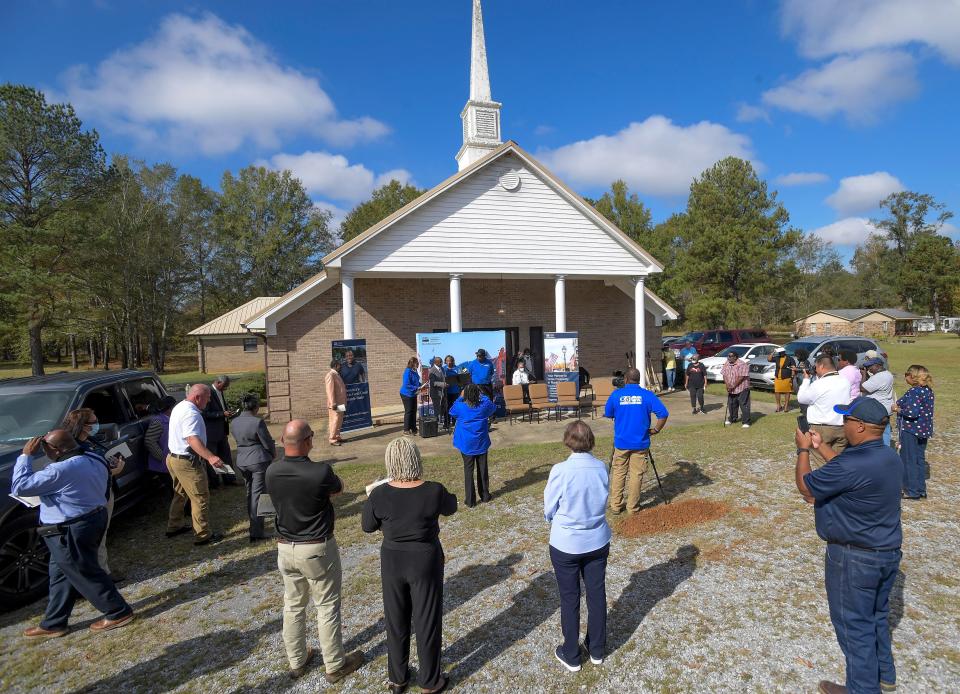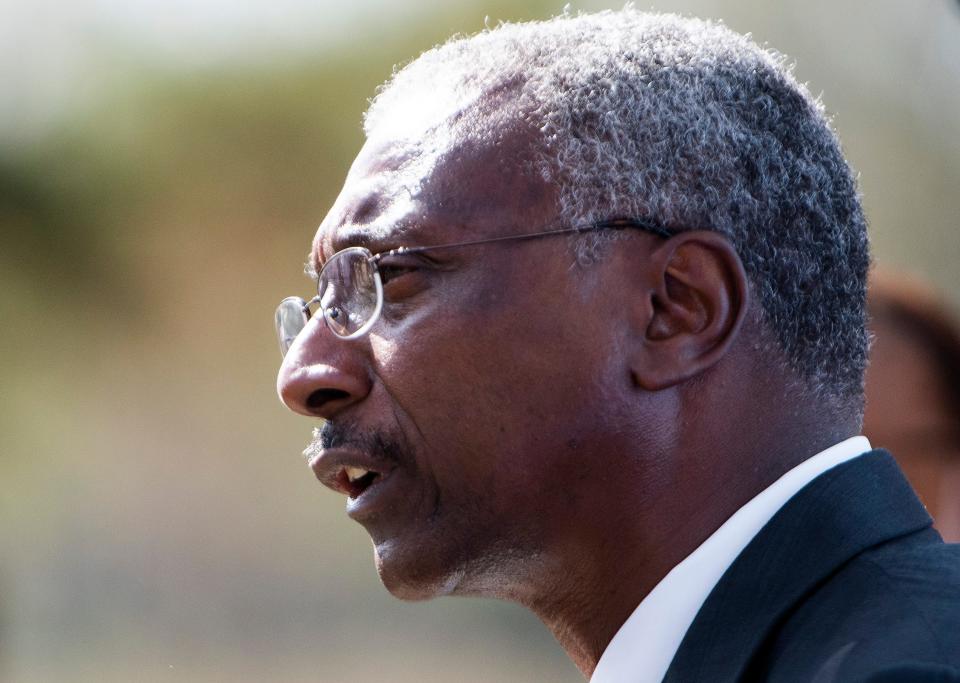Project will give some in Dallas County their first access to clean running water
More than 2 million Americans live without running water or indoor plumbing, and hundreds of them reside in Alabama’s Black Belt.
Whether it’s Lowndes County residents who don’t have working sewer systems or Uniontown residents who are afraid to use their well water, problems persist throughout the region.
About 15 miles west of Selma in rural Dallas County, one community has never had running water. In the coming months, though, that will change.
The West Dallas Water Authority has begun the expansion of its water treatment service to reach 69 homes and one church in the unincorporated community of Bogue Chitto. The project is a long time coming, since the water board began working to help the residents of Bogue Chitto gain access to clean water over a decade ago. A $3.8 million investment from the United States Department of Agriculture made the project possible, as well as support from the Dallas County Commission.
“For me, it has been a nightmare because the idea that in 2022 someone would not actually have safe water to consume, it was just more than I could wrap my mind around,” said Maggie Drake-Peterson, chair of the West Dallas County Water Authority. “I thank God that we were able to make this happen.”
Drake-Peterson grew up in Orrville, just about seven miles away from Bogue Chitto. She said she was always aware of struggles in the rural Black Belt, but she never thought clean drinking water, a basic human necessity, was one of them.
It wasn’t until 12 years ago when she retired from her position as a Michigan state court judge and moved home, that Drake-Peterson discovered that Bogue Chitto and several other small communities did not have running water.

At the time, residents either used deep wells or hand-dug wells in their backyards to supply water for drinking, cooking, bathing and anything else. That had been tradition out of necessity since Black landowners, many of whom were descendants of freed slaves, established Bogue Chitto in the early 1900s.
When Drake-Peterson joined the West Dallas water board, she and the other board members heard reports of Bogue Chitto residents getting sick after drinking their well water. They decided to do something.
“We’ve done tests in the area, and what we’ve discovered, in addition to their wells going dry in the summer, is that the wells were contaminated,” Drake-Peterson said. “You read about that stuff happening in Third World countries, but you don't expect it to happen in the United States.”
Over the last decade, since the tests were conducted, most residents stopped using their wells altogether, according to Drake-Peterson.

Instead, they opt to buy bottled water by the gallons.
This is a practice that too many residents of other U.S. cities, such as Jackson, Mississippi, and Flint, Michigan, have also had to adopt in recent years. People in those cities have received media attention for their struggles, while the hundreds of residents in the Black Belt have not.
In 2014 when Flint switched its water supply from Detroit’s Lake Huron to the Flint River, images of the muddied water flowing from residents’ pipes filled newspapers and TV screens across the country. Seeing those photos and videos spurred Drake-Peterson and other Dallas County leaders to increase their focus on helping Bogue Chitto.
“I knew what was happening here,” she said.
Drake-Peterson and the other board members went on the search for a way to fund the necessary expansion, and they found the USDA’s Water and Waste Disposal Loan and Grant Program. In order to qualify, though, they had to get at least 90% of the residents in the area to sign on and “agree to accept the water,” Drake-Peterson said.
Building up community support was what she considered the most difficult part of the project.
“There’s been a lot of problems over the years with people being taken advantage of by corporations and people saying they’re going to do one thing and doing something else,” Drake-Peterson said. “We had to, first of all, let them know who we are, you know? And show up time and time again to answer their questions and put their fears at rest. We had to let them know that we’re there to help them, not to try and hurt them or take advantage of them.”
After several years and many community question-and-answer meetings, the support was there. Construction on the expansion began on Nov. 7 and is expected to be complete by July 5.
“We are constantly striving to help our rural neighbors to provide essential resources, such as clean drinking water, in order to keep rural Alabama the kind of place where you want to live and raise a family,” said Nivory Gordon, the USDA Alabama Rural Development's director.

Gordon attended the ground-breaking ceremony for the project alongside the water board members and many other Dallas County leaders.
In a news statement from Gordon’s office, the USDA said that the access to running water will also allow the county to install new fire hydrants in rural areas like Bogue Chitto.
Though only 69 residences are getting running water, with the added fire hydrant capabilities, the USDA predicts that over 20,000 rural residents of Dallas County will benefit from this project.
As construction continues over the next eight months and Bogue Chitto residents keep drinking their bottled water, Drake-Peterson said she’s still thanking God that the running water is on its way.
Hadley Hitson covers the rural South for the Montgomery Advertiser and Report for America. She can be reached at hhitson@gannett.com. To support her work, subscribe to the Advertiser or donate to Report for America.
This article originally appeared on Montgomery Advertiser: Bogue Chitto community to gain access to running water for first time

